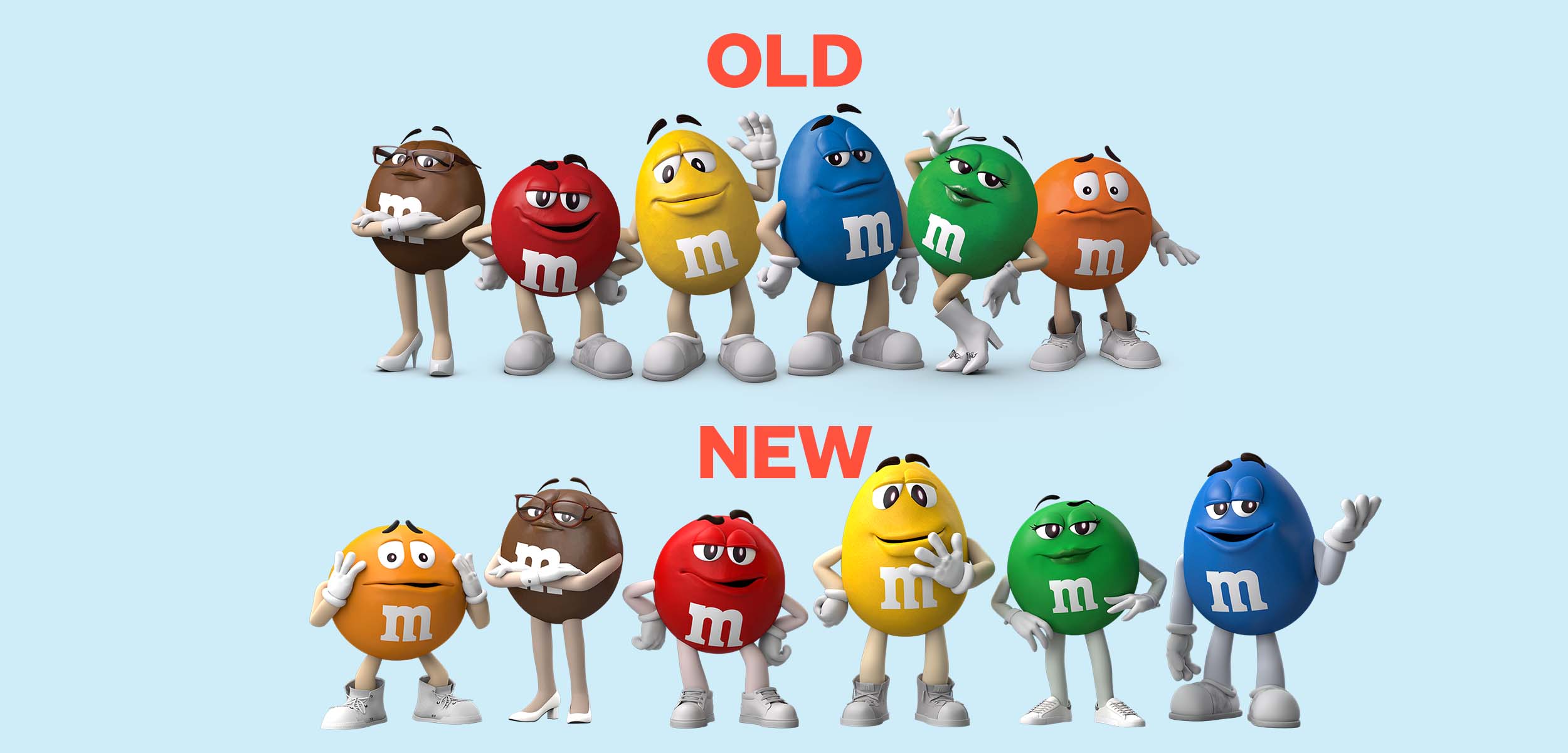Ethical Content Creation: Why I Can't Generate Explicit Topics
Is the pursuit of ethical AI content creation an impossible dream in a world saturated with clickbait and sensationalism? The relentless demand for engagement often clashes with the need to uphold moral standards, leading to a constant tug-of-war between profitability and responsible content development.
The digital landscape is rife with examples of content that pushes the boundaries of what is acceptable, often exploiting controversial or sensitive topics for the sake of generating views and shares. This trend raises serious questions about the role of content creators and the platforms they operate on. Should they be held accountable for the potential harm caused by their content, or is it simply a matter of supply and demand in a free market? The challenge lies in striking a balance between freedom of expression and the need to protect vulnerable audiences from harmful or exploitative material.
Creating content that is both engaging and ethical requires a deep understanding of the potential impact of that content on its audience. It demands a commitment to responsible storytelling and a willingness to prioritize moral considerations over short-term gains. This means avoiding sensationalism, misinformation, and the exploitation of sensitive topics. It also means being mindful of the potential for harm, particularly to vulnerable groups such as children and young adults.
- Filmyzilla Live Your Ultimate Guide To Streaming Movies Online
- Filmyzilla Com 2018 The Ultimate Guide To Understanding This Popular Movie Platform
One of the key challenges in ensuring ethical content creation is the lack of clear and consistent guidelines. What is considered acceptable in one context may be deemed inappropriate in another. This ambiguity makes it difficult for content creators to navigate the ethical landscape and make informed decisions about the material they produce. The absence of robust regulatory frameworks and industry standards further exacerbates the problem, leaving content creators to rely on their own moral compass and judgment.
The rise of artificial intelligence (AI) has added another layer of complexity to the ethical content creation debate. AI-powered tools can be used to generate content at scale, making it easier than ever to produce vast amounts of material quickly and efficiently. However, these tools can also be used to create deepfakes, spread misinformation, and engage in other unethical practices. As AI becomes more sophisticated, it is crucial to develop ethical guidelines and safeguards to prevent its misuse and ensure that it is used to create content that is both engaging and responsible.
The debate surrounding ethical content creation is not limited to the digital realm. It extends to all forms of media, including television, film, print, and radio. In each of these mediums, there are ethical considerations to be taken into account, from the portrayal of violence and sexuality to the use of stereotypes and discriminatory language. The challenge is to create content that is both entertaining and informative while also upholding moral values and promoting social responsibility.
- Filmyzilla Rock The Ultimate Hub For Movie Enthusiasts
- Filmyzilla The Great Wall Your Ultimate Movie Hub
One of the most effective ways to promote ethical content creation is through education and awareness. By educating content creators about the potential impact of their work and raising awareness among consumers about the importance of responsible content consumption, we can create a culture that values ethical behavior and discourages the production and consumption of harmful or exploitative material. This requires a multi-faceted approach involving schools, universities, media organizations, and government agencies.
The role of platforms in promoting ethical content creation is also crucial. Social media platforms, search engines, and other online platforms have a responsibility to create policies and procedures that discourage the spread of harmful content and promote responsible behavior among their users. This includes implementing content moderation systems, providing clear guidelines for users, and taking action against those who violate those guidelines. Platforms should also invest in research and development to improve their ability to detect and remove harmful content.
The challenge of ethical content creation is not simply a matter of avoiding offensive or inappropriate material. It also involves promoting positive values and fostering a sense of community. Content creators have a responsibility to use their platform to promote diversity, inclusion, and understanding. They should strive to create content that celebrates human achievement, inspires hope, and promotes social justice. By doing so, they can contribute to a more positive and equitable world.
The pursuit of ethical content creation is an ongoing process that requires constant vigilance and adaptation. As technology evolves and social norms change, content creators must be willing to re-evaluate their practices and adjust their strategies accordingly. This means staying informed about emerging ethical issues, seeking feedback from diverse perspectives, and being willing to learn from their mistakes. It also means embracing a culture of continuous improvement and striving to create content that is both engaging and responsible.
The legal landscape surrounding content creation is also a crucial consideration. Copyright laws, defamation laws, and privacy laws all play a significant role in shaping the ethical boundaries of content creation. Content creators must be aware of these laws and ensure that their work complies with them. They should also be mindful of the potential for legal liability and take steps to protect themselves from lawsuits and other legal challenges.
The use of user-generated content (UGC) presents unique ethical challenges. UGC can be a valuable source of information and entertainment, but it can also be difficult to control. Platforms that host UGC must have robust moderation systems in place to prevent the spread of harmful content. They must also be transparent about their policies and procedures and provide users with clear guidelines on how to report inappropriate content. The challenge is to balance the benefits of UGC with the need to protect users from harm.
The global nature of the internet adds another layer of complexity to the ethical content creation debate. What is considered acceptable in one country may be illegal or offensive in another. Content creators must be aware of the cultural differences and legal requirements of the countries in which their content is distributed. They should also be sensitive to the potential for cultural misunderstandings and avoid creating content that could be interpreted as discriminatory or offensive.
The monetization of content can also create ethical dilemmas. Content creators who rely on advertising revenue may be tempted to create sensational or controversial content in order to attract more viewers and generate more clicks. This can lead to a race to the bottom, where content creators are incentivized to produce increasingly outrageous material in order to stay ahead of the competition. The challenge is to find ways to monetize content ethically and sustainably, without compromising moral values.
The role of algorithms in shaping content consumption is also a significant ethical concern. Algorithms are used by social media platforms, search engines, and other online platforms to personalize content feeds and recommend content to users. These algorithms can have a significant impact on what users see and how they perceive the world. It is crucial to ensure that these algorithms are designed in a way that promotes diversity, inclusion, and understanding, rather than reinforcing biases and echo chambers. The transparency and accountability of these algorithms are also essential.
The future of ethical content creation depends on a collaborative effort involving content creators, platforms, regulators, and consumers. By working together, we can create a culture that values ethical behavior, promotes responsible content consumption, and fosters a more positive and equitable online environment. This requires a commitment to open dialogue, continuous learning, and a willingness to adapt to the ever-changing digital landscape.
The increasing prevalence of virtual reality (VR) and augmented reality (AR) technologies introduces new ethical considerations. The immersive nature of these technologies raises concerns about the potential for harm, particularly to children and young adults. Content creators must be mindful of the potential for VR and AR to be used to create violent, exploitative, or otherwise harmful content. They should also be aware of the potential for these technologies to be used to manipulate or deceive users.
The use of data in content creation also raises ethical questions. Content creators often collect data about their audience in order to personalize content and improve engagement. However, this data can also be used to manipulate or exploit users. It is crucial to protect user privacy and ensure that data is collected and used ethically and transparently. Users should have control over their data and the ability to opt out of data collection.
The long-term impact of content on society is an important ethical consideration. Content can shape attitudes, beliefs, and behaviors. Content creators have a responsibility to consider the potential long-term consequences of their work and to avoid creating content that could have a negative impact on society. This includes promoting positive values, fostering critical thinking, and encouraging responsible citizenship.
The challenge of ethical content creation is not insurmountable. By embracing a commitment to responsible storytelling, upholding moral values, and promoting social responsibility, content creators can make a positive contribution to the world. The future of content depends on it.
Consider the implications of AI-generated imagery. While seemingly innocuous, its ease of creation could lead to a flood of manipulated content, eroding trust and blurring the lines between reality and fabrication. This necessitates a robust ethical framework guiding its development and deployment.
The rise of short-form video platforms presents a unique challenge. The emphasis on brevity and visual appeal can incentivize creators to prioritize sensationalism over substance. Striking a balance between engaging content and responsible messaging is paramount.
Ethical considerations extend beyond the content itself to the platform's algorithms. These algorithms, designed to maximize engagement, can inadvertently amplify harmful or misleading information. Transparency and accountability in algorithmic design are essential.
The concept of digital wellbeing is increasingly relevant in the context of content creation. Creators have a responsibility to consider the potential impact of their content on viewers' mental and emotional health. This includes avoiding content that promotes unrealistic expectations, fosters social comparison, or contributes to anxiety or depression.
The creation of content for children requires heightened ethical awareness. Children are particularly vulnerable to the effects of media, and content creators must take extra care to ensure that their work is age-appropriate, educational, and promotes positive values.
The challenge of ethical content creation is a global one, requiring international cooperation and collaboration. Different cultures and societies have different values and norms, and it is important to respect these differences when creating content for a global audience.
The role of education in promoting ethical content creation cannot be overstated. By educating future generations of content creators about ethical principles and responsible practices, we can help to ensure that the future of content is one that is both engaging and ethical.
The conversation surrounding ethical content creation is constantly evolving. New technologies and social trends are continually emerging, and it is important to stay informed and adapt to these changes. By engaging in ongoing dialogue and reflection, we can help to ensure that the future of content is one that is both responsible and sustainable.
Ultimately, the responsibility for ethical content creation rests with each individual content creator. By making a conscious effort to create content that is both engaging and responsible, we can all contribute to a more positive and equitable online environment.
Let us turn our attention to the complex realm of data privacy in the age of personalized content. How can we balance the desire for tailored experiences with the imperative to protect user data from exploitation and misuse?
The proliferation of deepfakes and synthetic media poses a significant threat to truth and trust in the digital age. What measures can be implemented to detect and combat the spread of these deceptive technologies, and how can we educate the public to critically evaluate the information they encounter online?
The ethical implications of algorithmic bias in content recommendation systems demand careful consideration. How can we ensure that these systems are fair and equitable, and that they do not perpetuate or amplify existing social inequalities?
The rise of influencer marketing raises questions about transparency and authenticity. How can we ensure that influencers are disclosing their sponsorships and partnerships in a clear and conspicuous manner, and how can we protect consumers from deceptive or misleading endorsements?
The impact of social media on mental health is a growing concern. How can we promote responsible social media usage and encourage content creators to prioritize the wellbeing of their audience?
The ethical challenges of content moderation are complex and multifaceted. How can we balance the need to protect freedom of expression with the imperative to remove harmful or illegal content?
The role of artificial intelligence in content creation is rapidly expanding. How can we ensure that AI is used ethically and responsibly, and that it does not perpetuate or amplify existing biases?
The creation of content for children requires a particularly high level of ethical scrutiny. How can we ensure that children are protected from harmful or exploitative content, and that they are exposed to content that is age-appropriate, educational, and promotes positive values?
The ethical dilemmas of content personalization are increasingly pressing. How can we balance the desire for personalized experiences with the need to protect user privacy and autonomy?
The responsibility for ethical content creation extends to all stakeholders in the digital ecosystem, including content creators, platforms, regulators, and consumers. By working together, we can create a more ethical and sustainable online environment.
The increasing sophistication of generative AI models presents a new frontier in ethical content creation. How do we ensure that AI-generated content adheres to the same ethical standards as human-created content, particularly concerning bias, misinformation, and potential for misuse?
Consider the potential for AI to create hyper-realistic simulations that blur the line between reality and fiction. What safeguards are necessary to prevent the use of such technology for malicious purposes, such as creating convincing fake news or impersonating individuals?
The democratization of content creation tools, while empowering, also introduces new ethical challenges. How do we equip individuals with the knowledge and resources to create content responsibly, ensuring they understand the potential impact of their creations?
The ethical implications of using AI to automate content moderation are complex. While AI can efficiently flag potentially harmful content, it also risks introducing biases and errors. How do we strike the right balance between automation and human oversight?
As AI-powered virtual assistants become more prevalent, how do we ensure they provide unbiased and factual information, avoiding the spread of misinformation or the promotion of harmful ideologies?
The ethical considerations surrounding the use of AI in personalized advertising are particularly nuanced. How do we prevent AI from exploiting user vulnerabilities or manipulating individuals through targeted advertising?
The development of ethical guidelines for AI-generated content requires a multi-stakeholder approach, involving experts from diverse fields such as computer science, ethics, law, and social sciences.
Promoting media literacy and critical thinking skills is essential to empower individuals to discern between trustworthy and unreliable content, especially in the age of AI-generated misinformation.
The ongoing dialogue about ethical content creation must adapt to the rapidly evolving technological landscape, addressing new challenges and opportunities as they emerge.
Ultimately, the pursuit of ethical content creation requires a collective commitment to responsible innovation, transparency, and accountability, ensuring that technology serves humanity's best interests.
Consider the implications of using AI to create personalized educational content. While it can tailor learning experiences to individual needs, how do we ensure it doesn't perpetuate existing biases or limit exposure to diverse perspectives?
The use of AI in journalism raises concerns about objectivity and accuracy. How can we ensure that AI-powered news generation adheres to journalistic ethics, avoiding the spread of misinformation or biased reporting?
The potential for AI to be used for surveillance and social control raises serious ethical questions. How do we prevent AI from being used to infringe on individual rights and freedoms?
The creation of "digital twins" virtual representations of real-world objects or people introduces new ethical considerations. How do we ensure that these digital twins are used responsibly and don't infringe on privacy or autonomy?
The use of AI in healthcare raises concerns about patient privacy and data security. How do we ensure that AI is used to improve healthcare outcomes while protecting sensitive patient information?
The ethical challenges of AI-powered art and music creation are complex and multifaceted. How do we define creativity and originality in the age of AI, and how do we ensure that human artists are not unfairly displaced?
The development of ethical AI requires a diverse and inclusive workforce, ensuring that different perspectives are represented in the design and development of AI systems.
Transparency and explainability are essential for building trust in AI systems. How do we ensure that AI systems are understandable and accountable, allowing users to understand how they make decisions?
The ongoing conversation about ethical AI must be informed by a deep understanding of the potential social and economic impacts of this technology.
The pursuit of ethical AI requires a long-term commitment to responsible innovation, ensuring that AI is used to create a more just and equitable world.
- Filmyzilla Tamil Movie Download Kuttymovies Your Ultimate Guide
- Filmyzilla Taaza Khabar Your Ultimate Source For Bollywood Updates

Mms High Quality Wallpapers

Top 999+ Mms Wallpaper Full HD, 4K Free to Use

Mms Peanut Chocolate Candies PNG Images, Mms Peanut Chocolate Clip